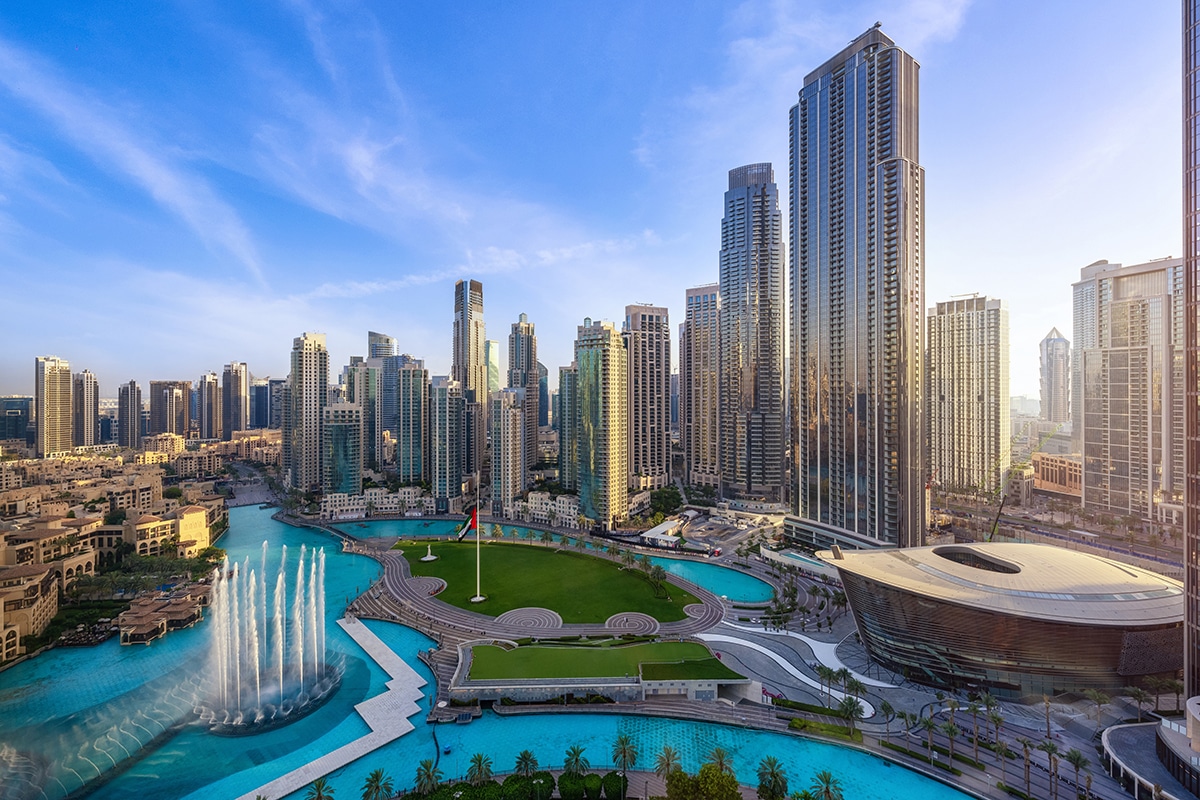The Dubai real estate sector is seeing a shift towards mixed-use developments of late that combine residential, commercial, and leisure spaces amidst talks about a moderation in the market growth rate, industry experts said.
Besides, affordable housing is emerging as the new focal point as developers target the growing middle class and young professionals moving to Dubai.
Smart cities powered by digital infrastructure and artificial intelligence (AI) are also thrusting themselves to the forefront, with leading real estate companies vying with each other to lure investors with promises of enhanced quality of life.
“Several key trends are seen to be emerging to shape Dubai’s – as well as the UAE’s – real estate market towards the end of 2024 and beyond.
“One significant shift is the move towards mixed-use developments that combine residential, commercial, and leisure spaces, offering a holistic living experience,” Karun Luthra, Vice President – global operations at Foremen Fiefdom, a Dubai-based leading real estate investment firm, told Arabian Business.
“Another visible trend is developers increasingly offering properties at accessible price points, especially in areas along the city’s borders, to attract middle-income buyers,” he said.
Luthra said this is also a strategic move amidst the rising rents for properties in the emirate.
Talks of growth moderation
Industry insiders said several developers are currently re-working their business models and strategies with a section of market experts predicting that growth will moderate.
They said developers are tweaking their projects in the pipeline to come up with properties offering accessible price points and also enticing investors to acquire appreciating properties that deliver steady returns.
Senior industry executives said a rise in community developments is also projected in 2025, promoting a balanced work-life environment to attract higher occupancy rates.

Luthra said simultaneously, there is an increased focus on sustainability in real estate, with green building certifications becoming the new standard.
Projects like Dubai Sustainable City emphasise this shift, capturing the attention of environmentally conscious investors.
“These sustainable initiatives, coupled with a strong government push through programmes like the UAE Golden Visa, suggest a robust future for Dubai’s real estate market.
“Moreover, foreign investment is expected to thrive in the coming years, bolstered by government initiatives aimed at enhancing Dubai’s global allure,” he said.
Dubai luxury real estate market drives growth
Sector experts said despite the current shifts in the industry, the luxury real estate sector in Dubai is expected to continue its bull run as more and more global elites are seen eyeing making investments in the segment.
The continued high demand for high-end properties is enabling the luxury real estate sector to emerge as among the key drivers of the UAE’s economic growth, they said.
“The construction of luxury residential complexes creates jobs, while the arrival of wealthy residents stimulates demand for luxury services, retail, and dining,” a senior executive at proptech venture said.
“Dubai’s reputation as a safe, tax-free haven for the global elite also encourages capital inflow, reinforcing the city’s status as a premier investment hub,” the executive said.
Luthra said that by attracting affluent international buyers, the emirate’s high-end developments will contribute significantly to the national economy.
“As the luxury property market expands, its influence on the UAE’s GDP and broader economy becomes more pronounced,” he said.
The Foremen Fiefdom senior executive also said keeping market sentiments positive, property prices in Dubai are predicted to rise steadily by 5 to 7 per cent annually this year and in 2025 due to sustained demand.
“Market insights suggest that the UAE’s real estate market is poised to reach $680 billion by the end of the year, with the residential market alone accounting for $390 billion.
“This growth underpins the country’s economic strength and global investment appeal,” he said.
The UAE central bank forecasts a 6.2 per cent GDP (gross domestic product) increase in the coming year, driven by the real estate markets, especially that of the luxury property segment, contribution to the country’s economic growth, he said.






